2002 North Main Street
Santa Ana, California 92706
TEL: 714.567.3600
The Power of the Bowers’ Photography Collection
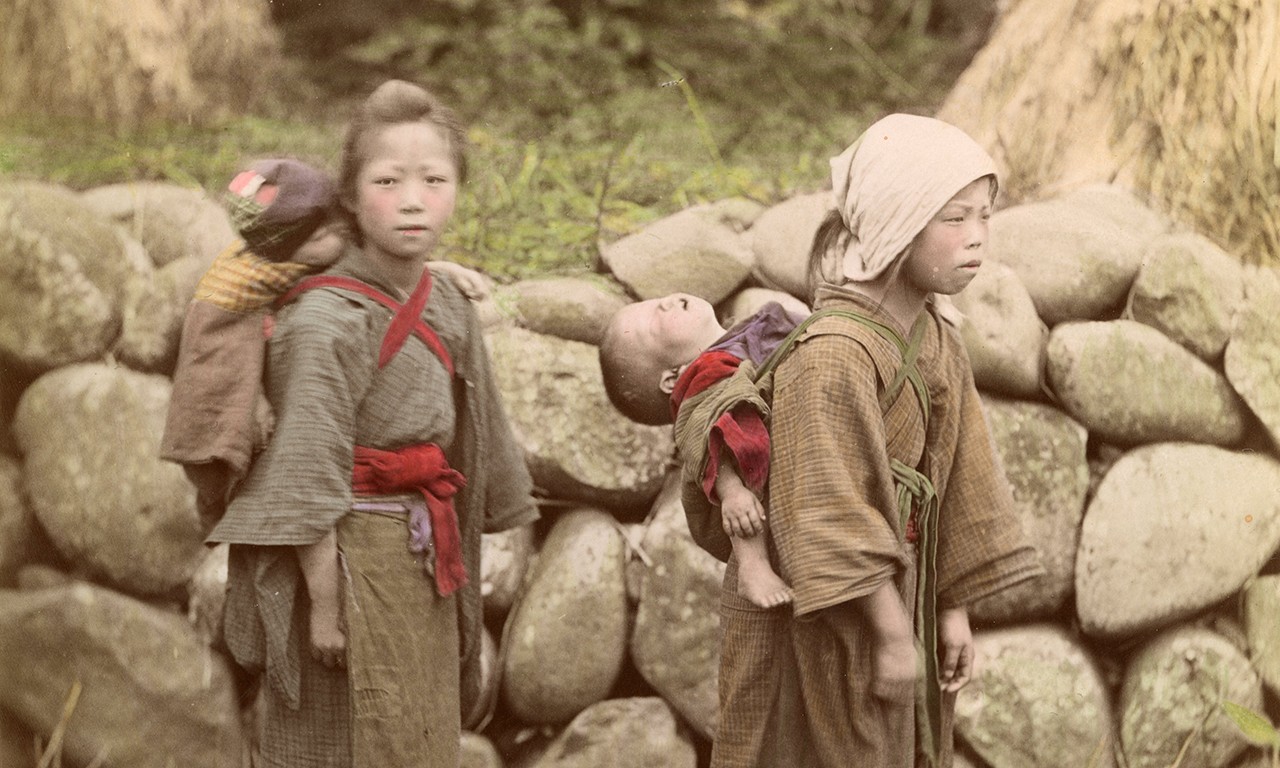 |
| Detail of Two Girls Carrying Children, c. 1899 Kusakabe Kimbei (Japanese; 1841–1934); Japan Photographic print F76.41.53 Gift of Herb Hansen Interiors |
Coming Soon
This Saturday the Bowers Museum opens its doors to The Power of Photography, an exhibition curated by the expert collector and gallerist Peter Fetterman. The show closely studies the way in which photographs make people feel and connect people to one another. The poignant project began as a response to the requirement that we isolate ourselves from one another during the pandemic and has flourished into a series on Fetterman’s website with well over 1,000 posts, a catalogue, and now a traveling exhibition. As the Bowers Museum has over 10,000 photographic prints in its permanent collection, today the Bowers Blog looks at a small selection of images that capture some of the same themes explored in the exhibition.
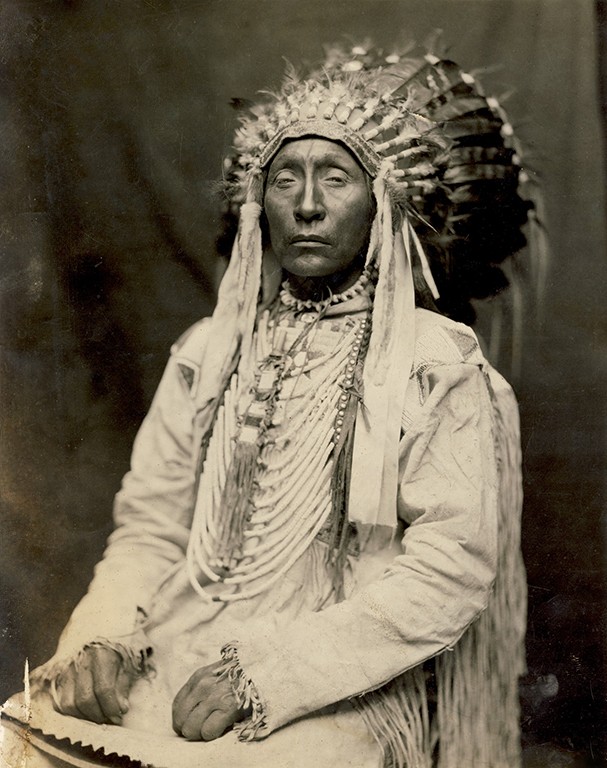 |
| Chief Eagle Calf (John Ground), c. 1920 Frank Jay Haynes (American, 1853-1921); Glacier National Park Photograph; 10 x 8 in. 33132 Gift of Mr. Lawrence Gale |
Storied Life
Eagle Calf, also known as Pita Onesta or John Ground, was a Siksikaitsitapi (Blackfoot) chief in the early to mid 20th century. In 1978 his wife, who went by Grass Woman or Mary Ground, published a 14-episode anthology based on her stories and experiences. It tracks the sweeping changes that both she and her community experienced, including what she described as the vanishing cultural practices of her people. Though many depictions of Eagle Calf, including an oil by Joseph Henry Sharp, depict him with an ambivalent expression, this Frank Jay Haynes’ photograph instead captures the resolve and determination of a heavily burdened leader. Eagle Calf passed away in 1951, almost forty years before his wife.
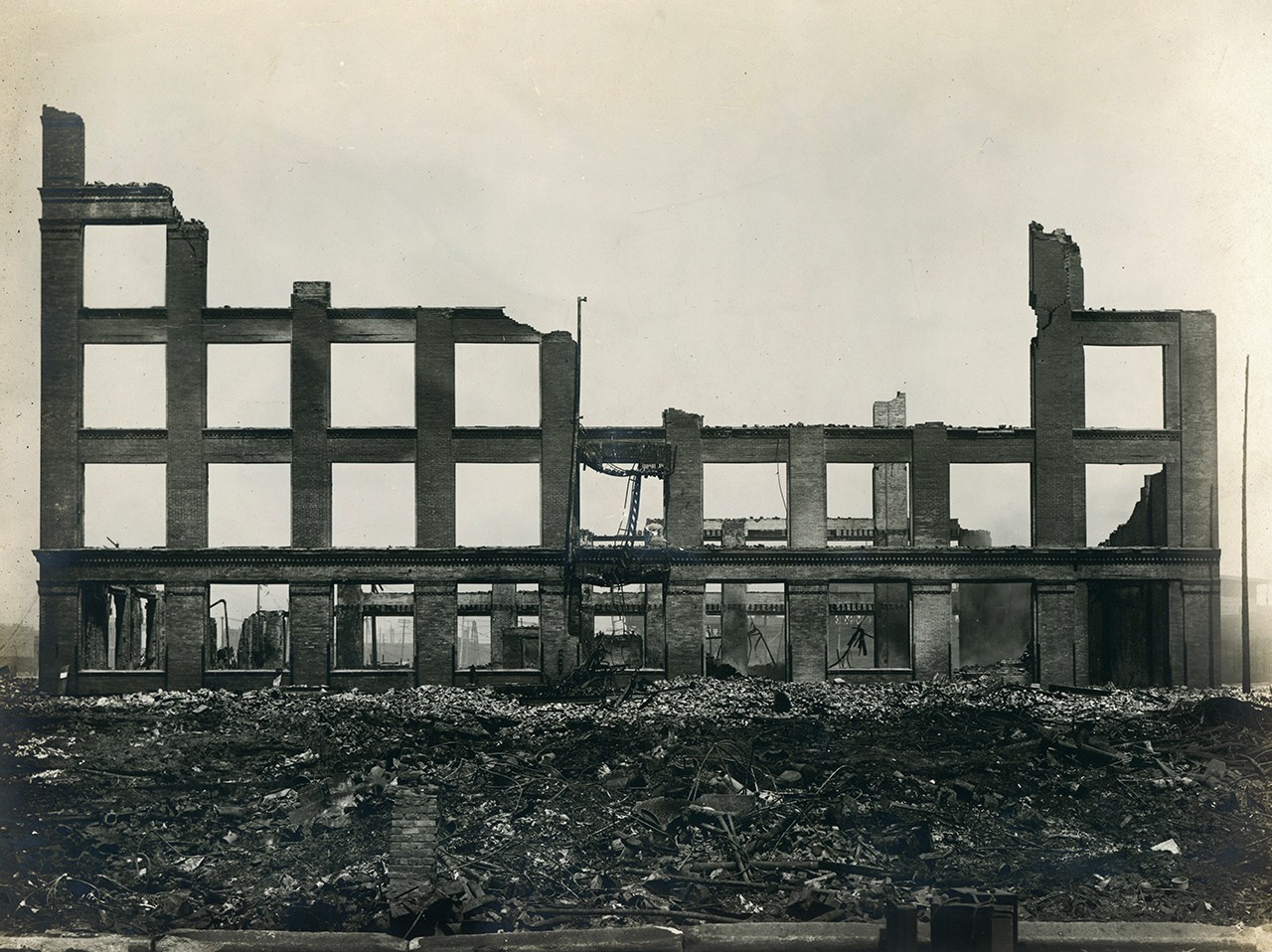 |
| View of Burned Factory, 1906 M.M. Steele Foto Co. (Ocean Park, Cal.); San Francisco Gelatin silver print; 6 x 8 in. 75.30.7H Gift of Mrs. Thomas T. Inch |
Hollowed-Out Buildings
On Wednesday, April 16, 1906 a magnitude 7.9 earthquake rocked the city of San Francisco to its core. Whether buildings remained standing or crumpled, they became fuel for a tremendous conflagration that tore through the city, contorting it into an ashen hellscape and claiming an estimated 3,000 lives. During the fire, the city’s photographers captured images of blocks disappearing one by one into a wall of smoke that blacked out the sky. In its wake, more documentarians descended upon the ruins trying to make sense of what had happened or at the very least capture some much-in-demand shots of the resulting carnage. This photograph by M.M. Steele of Ocean Park, California attempts something very different than most other post-fire images. Its composition juxtaposes the chaotic destruction wrought by nature against a neat lattice of brickwork that is miraculously still standing. The wall seems an incidental symbol of the indefatigability within the architecture of people.
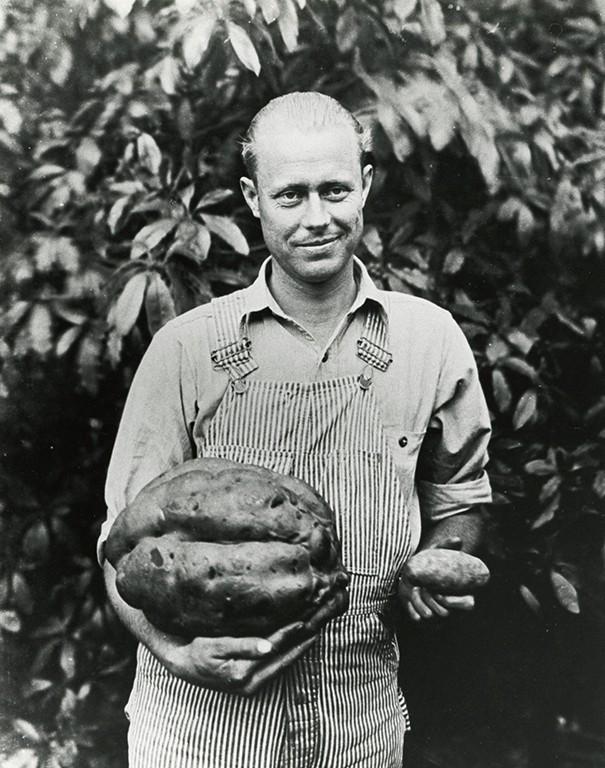 |
| Untitled (Man with Potatoes), early to mid 20th century Leo Tiede (American, 1889-1968); Southern California Photographic print 33587.3B Leo Tiede Photography Collection |
Spud Muffin
Though surely no formal count has ever been taken, the number of photographs of men holding oversized produce must be somewhere in the millions. This is perhaps an image like so many others, but the pride—or perhaps even benign arrogance—painted on this farmer’s visage with a smirk is a rare, entirely a pure emotion. His look is cool and collected in spite of the whole right side of his body listing to compensate for the weight of the gargantuan, lobed potato he is holding. The man who took the photograph, Leo Tiede, was active in Southern California (especially Santa Ana) in the early to mid 20th century. This may have been taken at the Orange County Fair or some other ribbon-awarding event, or Tiede could have been commissioned to memorialize the prizewinning tuber by the proud grower.
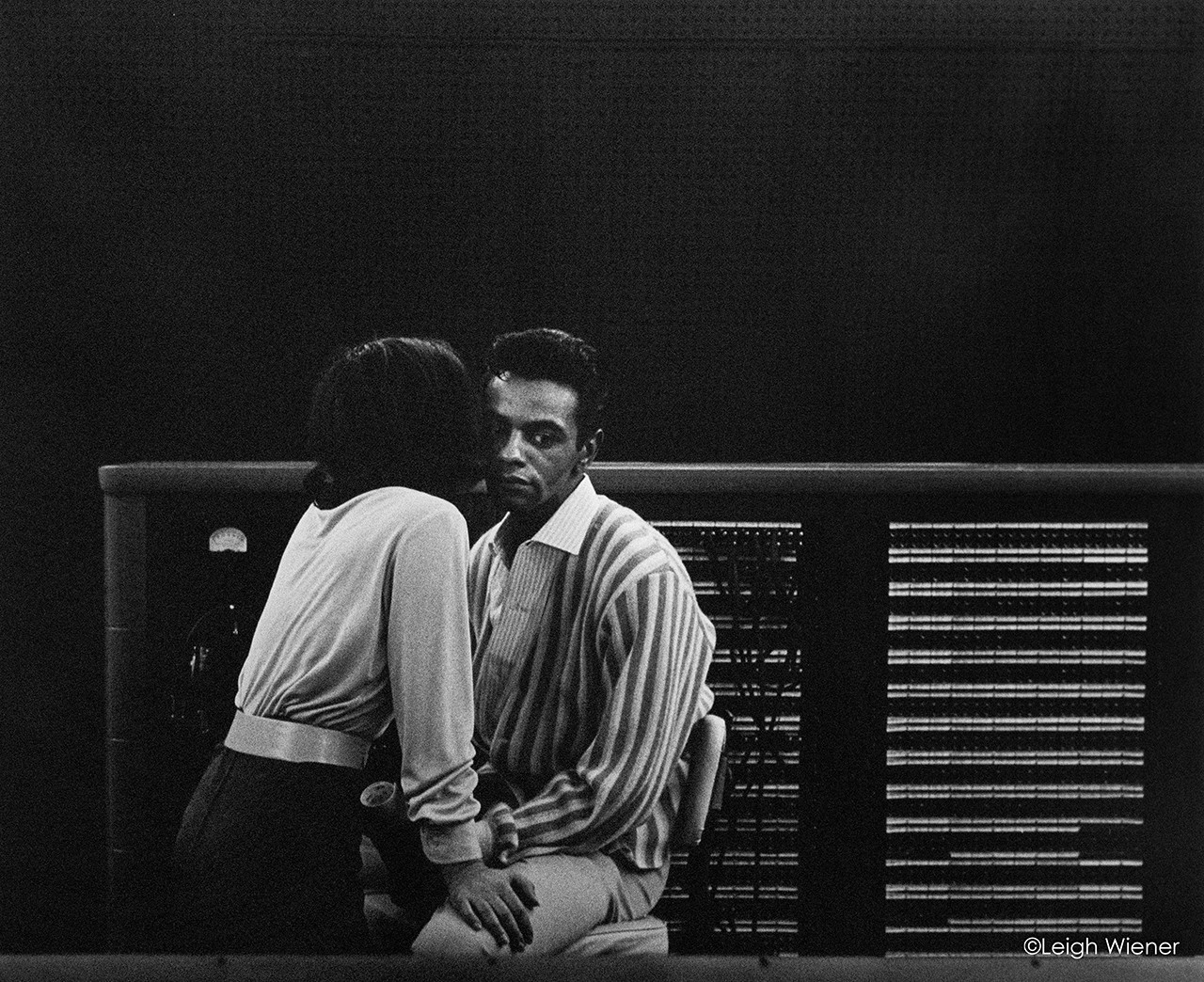 |
| Mathis and Friend, 1961 Leigh A. Wiener (American, 1929-1993); Las Vegas, Nevada Gelatin silver print on ektalure paper; 20 × 16 in. 87.6.36 Gift of Leigh A. Wiener. ©Leigh Wiener / 7410 Inc. All rights reserved |
Mathis and Friend
The acclaimed photographer Leigh Wiener exhibited a series on Black American celebrities at the Bowers between February 14 and March 29, 1987 and very generously donated the same collection to us shortly thereafter. Though Wiener is often commended for his ability to form a connection with his subjects, this image is apparently a candid shot of Johnny Mathis and an unidentified acquaintance. The relationship between the two is a dynamic one—the expression on Mathis’ face contrasts starkly against the body language of the woman resting a hand on this thigh. One is left to wonder what exactly she is whispering into his ear. Wiener took this around the time Mathis recorded I'll Buy You a Star live in Las Vegas in 1961, the cover of which Wiener had been commissioned to photograph by the record label.
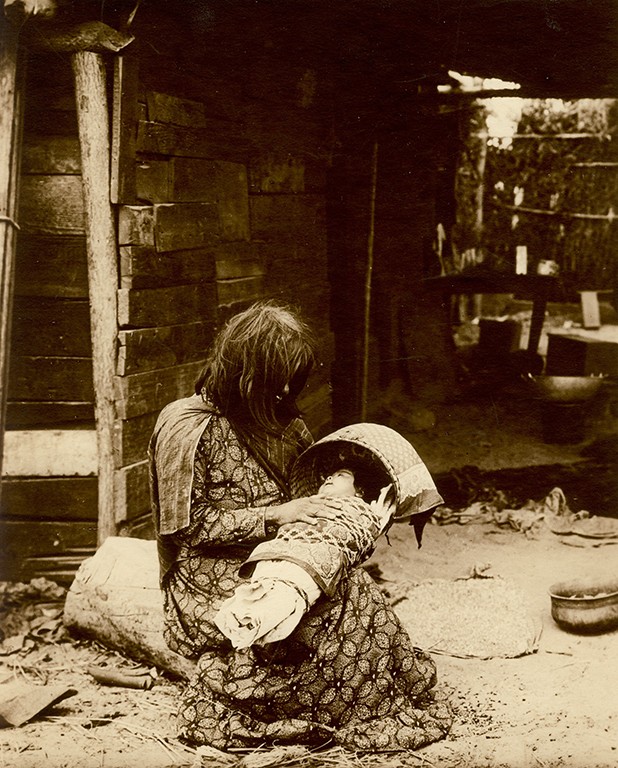 |
| Arizona Indians (Woman with Child), c. 1910 Putnam & Valentine (American, active c. 1898-1912) Gelatin silver print; 9 1/2 × 7 3/4 in. 20629 Mary J. Newland Collection |
Mother and Child
The expression of this Indigenous woman is blanketed in mystery by her cascading hair, but there is no doubt about the love that she feels for her child. She is unidentified by the photographer other than being from Arizona, however, a caption in a 1907 article titled “Our Other Race Problem” adds that she is a graduate from an “Indian School,” one of the United States’ American Indian Boarding Schools which were created with the stated intention of assimilating Native American children into Euro-American society. An end that was attempted through a myriad of rules and punishments aimed at stripping away every part of an individual’s Indigenous identity. This woman has suffered a terrible injustice and still exudes an air of unfaltering love for her child.
Text and images may be under copyright. Please contact Collection Department for permission to use. References are available on request. Information subject to change upon further research. The Power of Photography is organized by Photographic Traveling Exhibitions, Los Angeles, CA. Bowers' presentation of The Power of Photography is sponsored by The Ronald C. and Kristine Pietersma Family Trust.

Comments 1
Interesting photos, it causes me to have different feelings, fear and emotion as well as a stinging